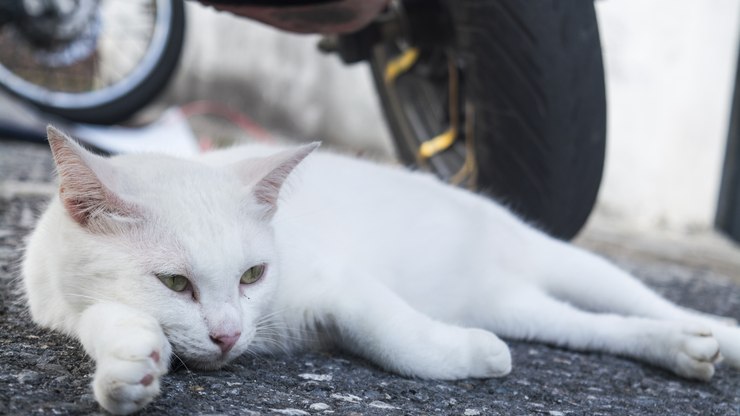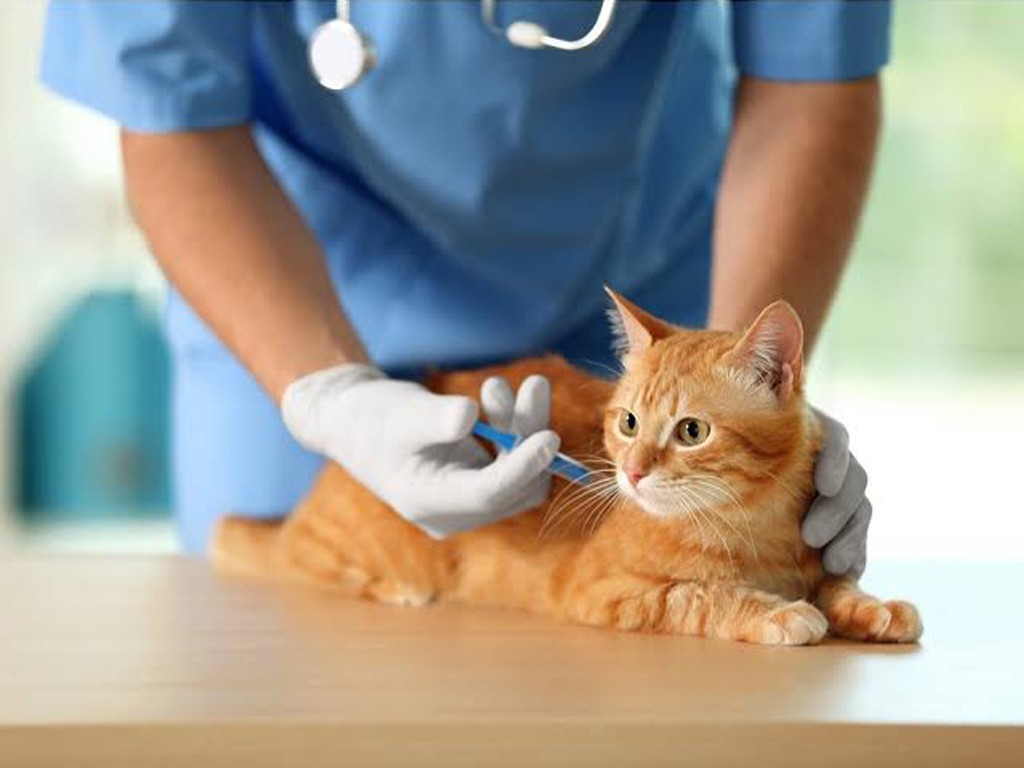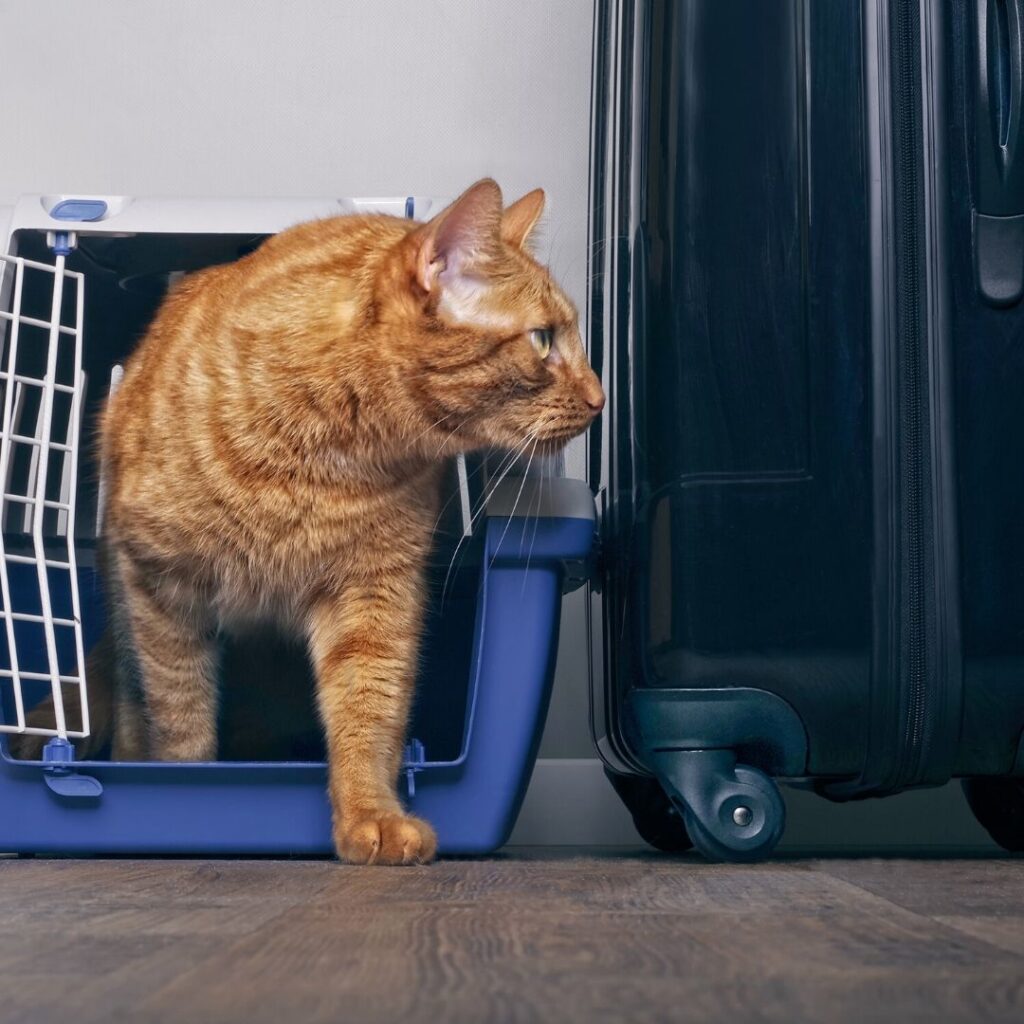Our pets can also be affected by several diseases that lead to death, such as IVF and FeLV.
These infectious diseases, popularly known as AIDS and Feline Leukemia respectively, scare animal owners a lot, mainly because they have no cure.
Vaccination is the best form of prevention in the case of FeLV. In addition, it is important to test animals regularly for an early diagnosis.
In the case of adopting cats, that had a 50% increase during the pandemic, testing is even more important.
In this way, PETFriendly Turismo has prepared this content to answer all your questions about IVF and FeLV strong>.
What is FIV and FeLV

FIV (Feline Immunodeficiency Virus) and FeLV (Feline Leukemia Virus) are retroviruses that cause common infectious diseases in cats.
The retrovirus of the Lentivirus genus is the cause of FIV, belonging to the same family as the virus that causes the Acquired Immunodeficiency Syndrome (AIDS).
However, FIV is not transmitted to humans and dogs.
FeLV is caused by a retrovirus of the Oncornavirus genus.
Both are fragile and unstable viruses in the environment. Therefore, they are easily inactivated by heat or by the use of common disinfectants and detergents.
How does the cat get this disease?
IVF and FeLV are extremely contagious and transmitted in direct contact between a healthy cat and a sick one.
Animals can be infected through:
- Licks, scratches and bites;
- Division of pots, boxes and toys;
- During pregnancy and breastfeeding;
- Blood transfusions; e
- For coitus (rare).
What are the main symptoms of IVF and FeLV
Both IVF and Felv can cause diseases in the immune system of animals and the emergence of cancer, especially in the case of Felv.
Retroviruses destroy the defense cells of cats, causing secondary diseases.
IVF symptoms
IVF is made up of three phases and can be asymptomatic.
In the first phase, the acute one, the animal has a fever and enlarged lymph nodes. However, they soon cease, disappearing for months or years.
In the second phase, which is asymptomatic, the immune system is able to neutralize the activity of the virus for a period.
However, the virus destroys the lymphocytes (cells that protect the body against diseases, infections and allergies) little by little.
The symptoms of IVF appear in the third stage of the disease, and are usually:
- Infections;
- Skin lesions;
- Generalized infection (Sepsis);
- Secondary diseases, which can affect the gums, mouth, digestive and urinary.
At this stage, cats are at risk of developing some cancer and the risk of death is higher.
Symptoms of FeLV
Felv is a very severe disease. Therefore, if not treated at the beginning of the symptoms, it can lead to the death of the animal.
Felines with FeLV can go years without showing symptoms. Furthermore, they will depend on the virus subtype, which can be A, B, C and T.
However, the most common symptoms of FeLV are:
- Weight loss;
- Anemia;
- Apathy;
- Respiratory problems;
- Stomatitis;
- Fever;
- Anorexia.
Furthermore, cats with FeLV often show a drop in red (anemia) and white (leukopenia) blood cells.
FeLV has four phases: abortive, regressive, latent and progressive.
In the first phase, the immune system of the cat exposed to the virus inhibits the viral multiplication in its cells.
In the second phase, viral multiplication is limited and, in this way, some animals are still able to fight the virus.
In the Latent phase, the cat has a moderate amount of virus. In the Progressive phase, therefore, the infected feline begins to show the symptoms of the disease, in addition to being able to transmit it to other animals.
Understanding the false positive and false negative of IVF and FeLV

Depending on the stage at which the animal is tested for FIV and FeLV the result can be false positive or false negative.
Furthermore, if the mother acquires FIV or FeLV during pregnancy, the test result will be false negative, as it takes time for the detection of diseases.
Because some cats are able to inhibit the infection and become free of FIV and FeLV, not every positive result means the cat is sick.
Thus, it is important to combine serological tests with DNA tests.
IVF
In the case of FIV, the test detects antibodies against the virus and the positive result takes approximately 4 months to appear. If the cat is tested in this range, the result will be false negative.
For this reason, it is important to retest the animal for 30 to 40 days in doubtful cases.
FeLV
The test commonly used for the diagnosis of FeLV is ELISA. It detects a virus protein in the infected cat’s cells, however it may show false negatives.
An immunofluorescence and DNA test, called PCR (Polymerase Chain Reaction), can be used together with the ELISA, in case of false negative results.
In the abortive, regressive and latent phase, the ELISA shows a false negative. However, DNA tests can detect the disease in the second and third stages.
In the last stage of the disease, the Progressive one, both serological and DNA tests show positive results.
When should dogs and cats be tested?
It is necessary to carry out IVF and FeLV tests on newly acquired cats, especially stray cats.
It is also important to test sick animals, which have free access to the street, or have had contact with animals with FIV and FeLV.
In addition, it is important to test puppies, as they can acquire the disease from their mother.
How to prevent the cat from being infected?

The best way to prevent the cat from diseases is through vaccination. However, there is still no vaccine for IVF.
In this way, it is important to prevent the cat from having contact with strays or sick animals
Are there treatments for FiV and FeLV?
The treatment of IVF and FeLV is supportive. Thus, the infected cat needs to have veterinary monitoring, hygienic care, dental prophylaxis.
In addition, it is important to maintain a good diet, in addition to vaccination and deworming.
Furthermore, it is important that FIV or FeLV positive animals are neutered and live in a caged environment.
These actions reduce the risk of transmission to other cats, and also prevent the acquisition of secondary diseases, which can further aggravate the case of FIV and FeLV.
Do I need to perform IVF and FeLV tests abroad?
It is not mandatory to carry out IVF and FeLV tests for travel abroad, only for rabies, as we talk about in this post here.
However, if the animal has been outdoors a few days before the trip or has some of the symptoms mentioned above, it is good to take the test to prove it.
Now, if you still have any questions about traveling with cats with IVF and FeLV, please contact PETFriendly Turismo. Our experts can help you travel more safely with your pet.





You must be logged in to post a comment.